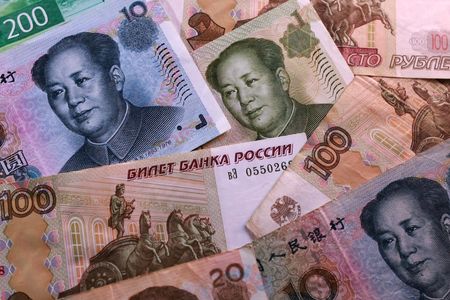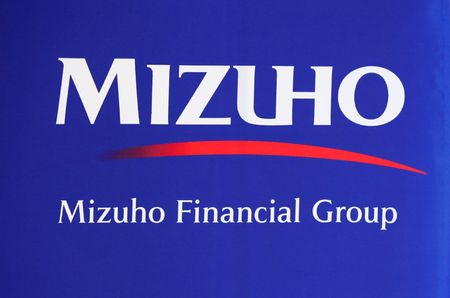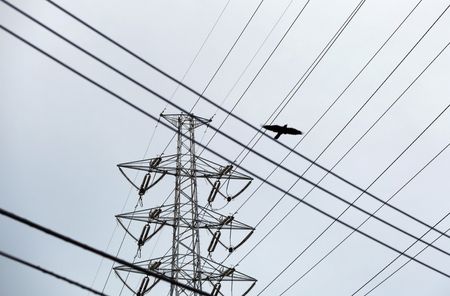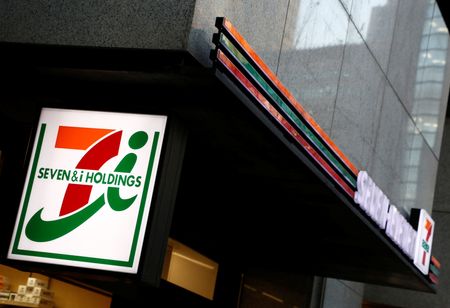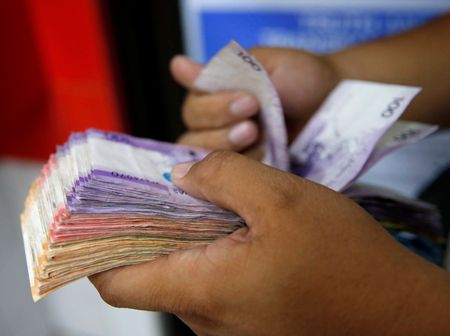By Elena Fabrichnaya, Oksana Kobzeva and Darya Korsunskaya
MOSCOW (Reuters) -Russia is planning to issue its debut yuan-denominated bond on the local market this year, sources told Reuters, offering an investment option for the vast amounts of yuan liquidity accumulated by exporters and banks from Russian energy sales to China.
Three financial market sources said the Finance Ministry plans up to four issues for a combined amount of up to 400 billion roubles ($5 billion) with maturities of between three and 10 years.
“The deal is planned for early December. They are aiming for the widest range of investors, from banks and asset management companies to brokers operating in the retail client market,” said one of the sources.
Another source said that the Ministry of Finance has held meetings with potential buyers, including banks and other institutional investors, presenting them with the potential parameters of the yuan bonds.
Transactions with the bonds could be also conducted in Russian roubles at the current exchange rate.
The preparations are taking place at a time when two U.S.- sanctioned Russian oil firms, Rosneft, and Lukoil are repatriating their yuan earnings ahead of November 21, when sanctions take effect.
Analysts from data agency Cbonds calculated that there were yuan-denominated corporate bonds worth 166 billion roubles currently in circulation in Russia.
Finance Minister Anton Siluanov said last May that 90% of all trade between Russia and China is conducted in roubles and yuan, without specifying the yuan share. Trade between Russia and China reached a record $245 billion last year.
The bonds will be issued on the Moscow Stock Exchange (MOEX), which is under Western sanctions, and will be off-limits for a majority of foreign investors, including those from China and other Asian countries.
THE ISSUE IS IN THE WORKS
Russia has been negotiating with China to create a “bridge” between the two countries’ financial markets that would enable Chinese investors to access Russian assets without being monitored by Western regulators.
Negotiations have so far yielded no results, despite strong political ties between Russia and China and the “no upper limits partnership policy” declared by President Vladimir Putin and China’s President Xi Jinping.
A source at the Finance Ministry, who declined to be identified due to the sensitivity of the matter, confirmed that the issue is in the works and will soon be announced.
The Finance Ministry and MOEX did not respond to a request for comment.
Analysts are expecting strong demand for the bonds from Russian exporters, including major energy firms, many of whom are currently holding their yuan earnings in bank deposits, pushing yuan interest rates inside Russia to a record low.
The placement will also mitigate some foreign-currency risk for the banking system, which is swelling with yuan liquidity from Russian energy sales to China, and help banks meet regulatory requirements, Renaissance Capital analysts said.
($1 = 81.3000 roubles)
(Additional reporting by Olesya Astakhova; Writing by Gleb Bryanski; Editing by David Holmes)

